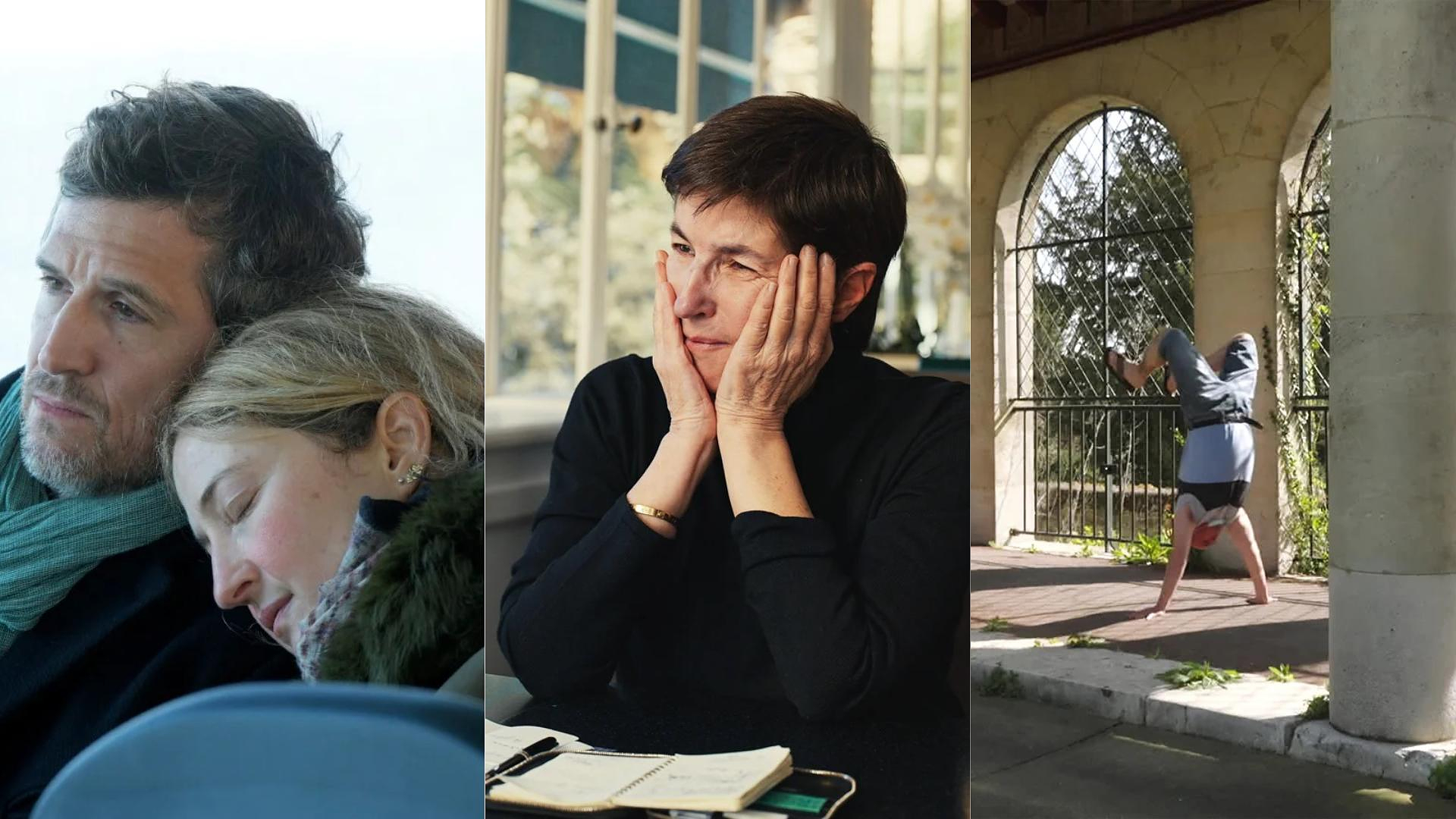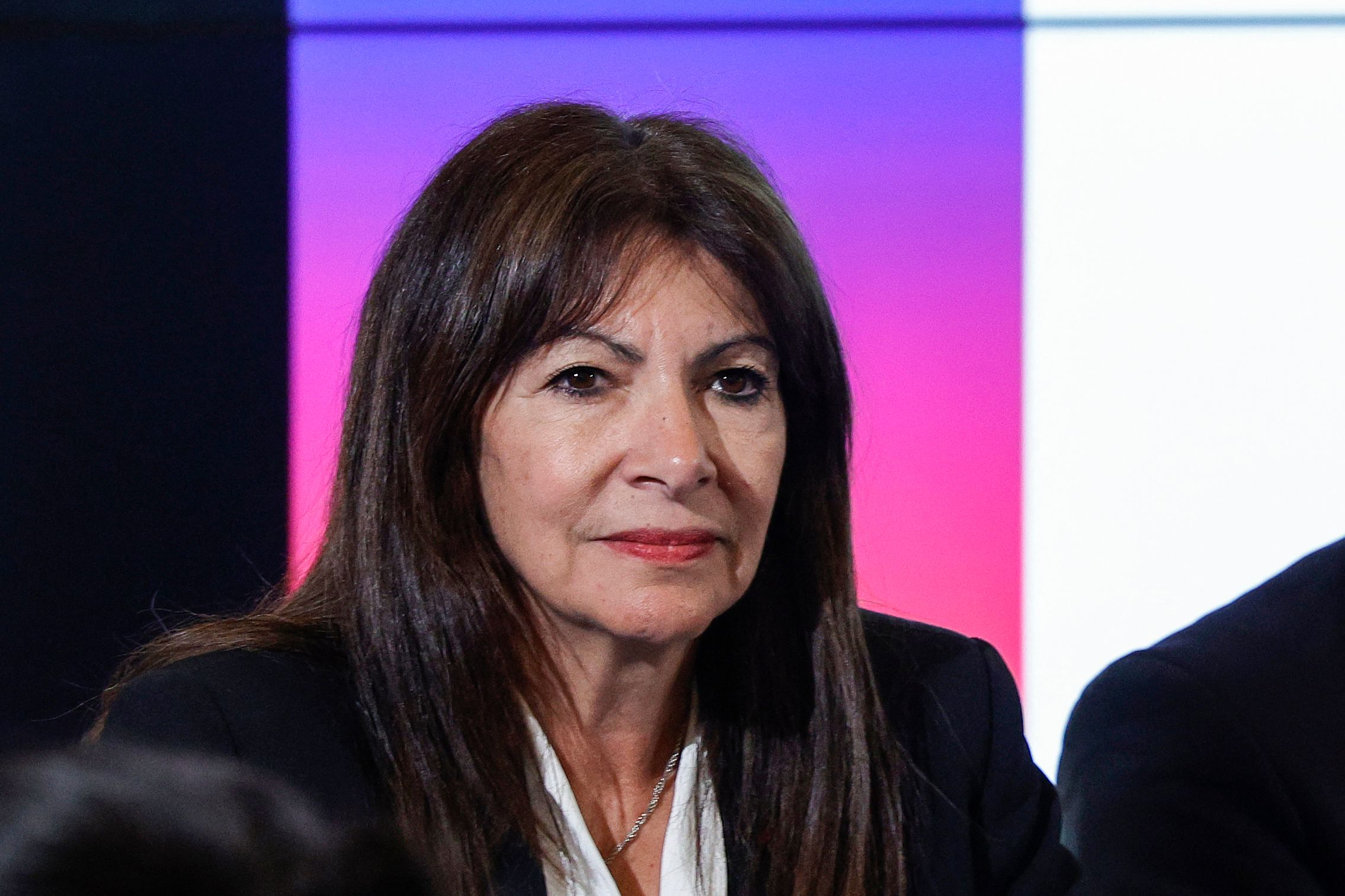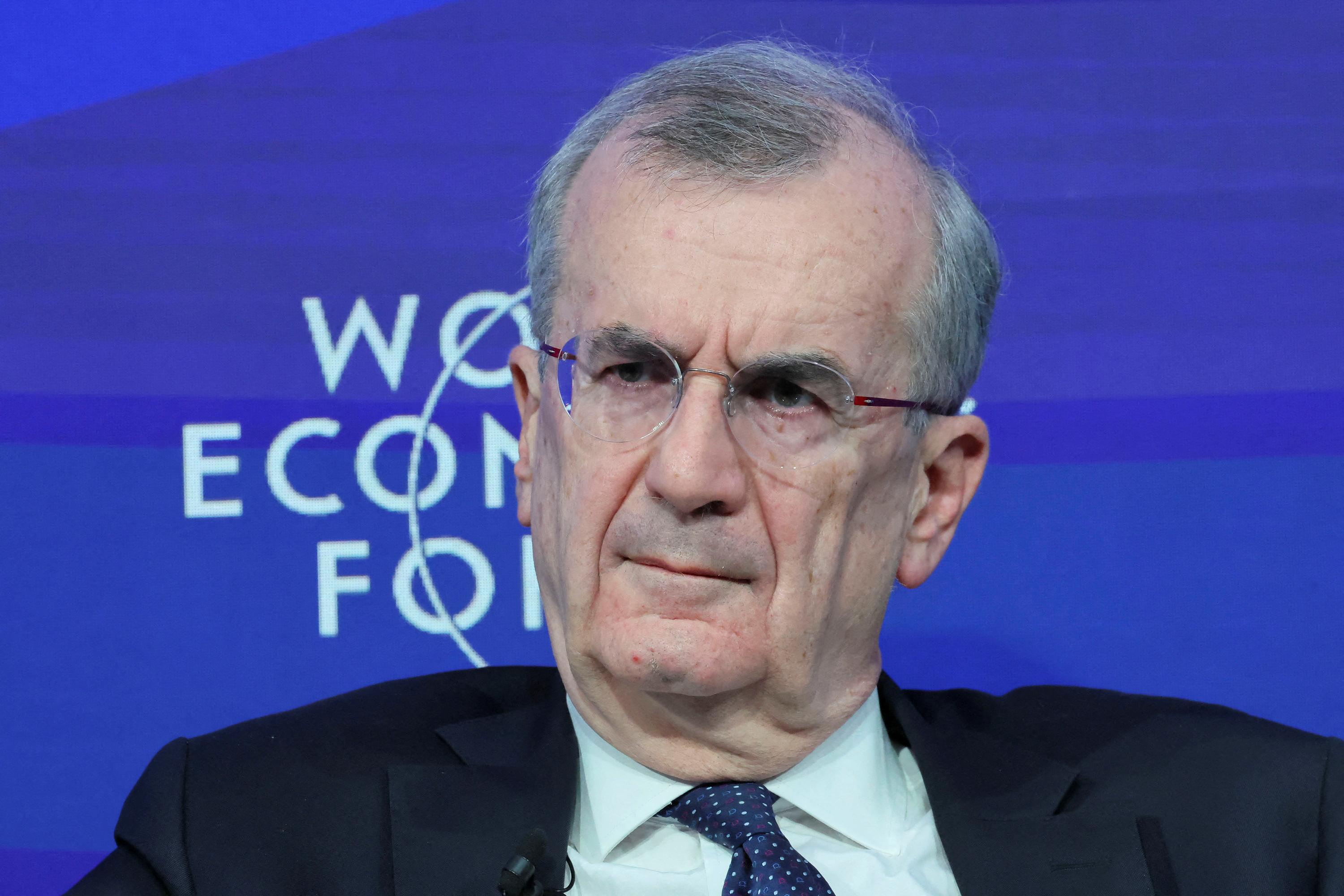Comedy by Stéphane Brizé, 1h 46
Guillaume Canet - who plays an actor in the film - arrives in a seaside resort on the west coast to do a thalassotherapy session. As soon as she enters, the receptionist asks her for a selfie. He had come to recharge his batteries in the fresh, salty air. He's on the verge of depression. The insight comes from Alice, a woman with whom he lived fifteen years earlier.
The vision of Alba Rohrwacher, blonde Florentine, stunning Italian accent, oscillating between reserve and laughter, is a symphony in itself. The actor comes back to life. They don't have to see each other again, they will see each other again. Chabadabada, chabadabada… Surprising Stéphane Brizé who, after the bitter struggles of workers in companies, takes a hit on us like Claude Lelouch. A man, a woman and the tireless surf of the waves who will never have anything to do with the moods of two little walkers at Sempé. Off-season seals the reunion of former lovers. Life passed, children were born, wrinkles deepened, memories softened and regrets? From this threading of pearls, Brizé knits a melodrama of porcelain delicacy. F.D.
Also readOur review of Off-season: chabadabada by the sea
Documentary by Nicolas Philibert, 2:23
The Adamant is a barge moored on the Seine in the heart of Paris. This stationary boat is part of the Paris Center psychiatry center. Nicolas Philibert put his camera there to shoot the very beautiful Sur l'Adamant, Golden Bear at the Berlinale in 2023. Nicolas Philibert is returning to psychiatry. Still at the Paris Center pole. This time, in the two Averroès and Rosa Parks units of the Esquirol hospital, formerly known as the “Charenton asylum”, on the edge of the Bois de Vincennes. We discover the building through an aerial shot filmed by a drone. “Is this our home?, asks a patient leaning on the drone operator’s connected tablet. It feels a bit like a penitentiary. »
In these enclosed spaces, Nicolas Philibert is forgotten to record the consultations. Psychiatrists listen to extraordinary speeches, “unusual” speech with infinite patience and real kindness. That doesn't make them heroes. Nicolas Philibert is not finished with the psychiatry center of Paris Center. In The Typewriter and Other Troubles, the final part of his trilogy, in theaters on April 17, the filmmaker films The Orchestra, a group of caregivers from Adamant who go to patients' homes to carry out odd jobs. Psychiatry in France seems to be a DIY affair. E. S.
Also readOur critique of Averroès and Rosa Parks: psychiatry with a human face
Drame de DK and Hugh Welchman, 1h54
We discovered DK and Hugh Welchman with The Van Gogh Passion (2017), their first feature film. The most successful Polish film in the world, nominated for an Oscar against Disney in 2018, this investigation into the last months of the painter of Sunflowers was astonishing in its magic and beauty. It was not a film, but not quite a cartoon in the common sense. The British-Polish director couple returns with the same process: shoot a live-action scenario with actors then paint each image in post-production, taking inspiration from the paintings of great masters. But by adapting The Girl and the Peasants, a little-known novel in France by Wladyslaw Reymont, this time he takes us to a hamlet at the end of the 19th century. It tells of the harshness of peasant life throughout the seasons, with its local customs and superstitions, the communion with nature, the violence of patriarchy and the elements.
Carried by music and captivating traditional songs, this story is universal. It is that of a peasant world soon to be over, stuck between medieval traditions and the first signs of a new century heralding labor rights and female emancipation embodied by the refusal of Jagna to comply with the rules. Despite the slowness of the story and its demanding austerity, we allow ourselves to be carried away, even hypnotized, by this naturalistic fresco to the rhythm of the seasons. V.B.
Also readOur review of The Girl and the Peasants: false loves and real brushes
Comedy by Ariane Louis-Seize, 1h30
In Humanist Vampire Seeks Consenting Suicide, Quebecer Ariane Louis-Seize invents an almost banal family of vampires. In any case, perfectly integrated into the human community. However, she is distinguished by her thirst for fresh blood. But Sasha (Sarah Montpetit, perfect as a taciturn Gothic), their only daughter, doesn't eat that kind of bread. She refuses to kill to live. Understanding, her parents provided her with bags of blood which she sipped through a straw like a sundae. But Sasha has grown up. The teenager feels her incisors growing and her parents getting impatient. They decide to cut off his supplies. No more blood bags without dirtying your teeth. Sasha is sent to her big cousin, an unscrupulous man-eater. One night, she meets Paul, a lonely teenager with suicidal tendencies. The boy is ready to sacrifice himself for the girl. Not so simple, as the two friends will discover during one night which should allow Paul to carry out his last wishes. Ariane Louis-Seize is not afraid of blood red or black humor. But Humanist Vampire… is not a gore film. He looks more towards American teenage comedies from the turn of the 2000s. S.
Also read: Our review of Humanist Vampire Seeks Consenting Suicide: The Beauty of Vampires
Documentary by Christine Angot, 1h22
Christine Angot returns to her incest. The way to do it differently? For this, she needs the camera. The speech is filmed. Caroline Champetier, seasoned cinematographer, follows her trail. You have to remember. She was 13; she was in fifth grade. Angot doesn't forget. We see her in her office today. “I have a book coming out at the moment,” she slips in voiceover. She returns to Strasbourg, the city where everything took place. Here she is in front of the house of her father's second wife. She turns, she hesitates, behind her sunglasses. She goes: the finger presses the doorbell. The door opens to reveal an old lady in yellow pants with a funny accent. The scene is violent, the tone harsh. “I have trouble standing on my legs,” admits the visitor. There is something. The exchange is dizzying. Angot demands one thing, one thing only, the truth. “I don’t want to know,” “I can’t judge,” the lady pleads. “ I don’t want your pain,” the writer responds. She makes the rounds of relatives. His mother listens to him, helpless, overwhelmed, rereading her diary from the time. With her ex-husband, who did not react when he should have, Angot realizes that they were wrong about their love. There is also his companion, Charlie, his very talkative lawyer. At times, the guard is lowered. “ I’m tired of talking about this. » The sequence with his daughter touches the heart. “ I’m sorry this happened to you,” said Léonore facing the Mediterranean. Christine Angot doesn't come out. She will never get out. It's his passion. The books are what they are. But there is this film, A Family. It exists, between cry and silence. It doesn't look like anything. It looks like, unlisted on the maps, an island beaten by the waves. E. NOT.
Also readOur review of A Family: when Christine Angot films her ills

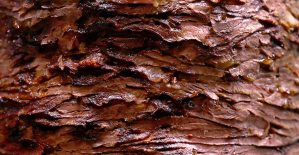 In Germany, the far left wants to cap the price of “doner kebabs”
In Germany, the far left wants to cap the price of “doner kebabs” Israel-Hamas war: Gaza between hope of truce and fear of Israeli offensive in the South
Israel-Hamas war: Gaza between hope of truce and fear of Israeli offensive in the South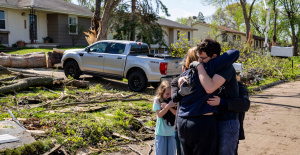 “Mom, Dad, please don’t die”: in the United States, a nine-year-old child saves the lives of his parents injured in a tornado
“Mom, Dad, please don’t die”: in the United States, a nine-year-old child saves the lives of his parents injured in a tornado War in Ukraine: Putin orders nuclear exercises in response to Macron and “Western leaders”
War in Ukraine: Putin orders nuclear exercises in response to Macron and “Western leaders” A baby whose mother smoked during pregnancy will age more quickly
A baby whose mother smoked during pregnancy will age more quickly The euro zone economy grows in April at its best pace in almost a year but inflationary pressure increases
The euro zone economy grows in April at its best pace in almost a year but inflationary pressure increases Children born thanks to PMA do not have more cancers than others
Children born thanks to PMA do not have more cancers than others Breast cancer: less than one in two French women follow screening recommendations
Breast cancer: less than one in two French women follow screening recommendations Call for strike on Sunday at Radio France against “the repression of insolence and humor” after the suspension of Guillaume Meurice
Call for strike on Sunday at Radio France against “the repression of insolence and humor” after the suspension of Guillaume Meurice Disney: profitable streaming for the first time, after 5 years of losses
Disney: profitable streaming for the first time, after 5 years of losses “I’m going to four concerts... I spent 1,255 euros”: for Taylor Swift, these fans ready to break the bank
“I’m going to four concerts... I spent 1,255 euros”: for Taylor Swift, these fans ready to break the bank SNCF: the CEO defends the agreement on the end of career, “reasonable, balanced and useful”
SNCF: the CEO defends the agreement on the end of career, “reasonable, balanced and useful”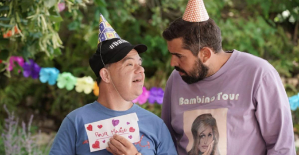 A little something extra, signed Artus, exceeds one million entries in less than a week
A little something extra, signed Artus, exceeds one million entries in less than a week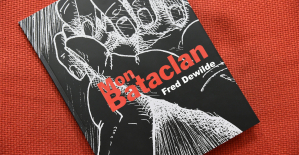 Fred Dewilde, designer and Bataclan survivor, ended his life
Fred Dewilde, designer and Bataclan survivor, ended his life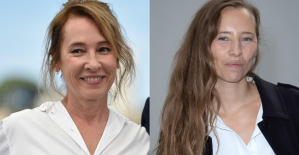 “I don’t appreciate being used as media cannon fodder”: Emmanuelle Bercot responds to Isild Le Besco
“I don’t appreciate being used as media cannon fodder”: Emmanuelle Bercot responds to Isild Le Besco Who is Deborah de Robertis, the artist who painted The Origin of the World?
Who is Deborah de Robertis, the artist who painted The Origin of the World? Omoda 7, another Chinese car that could be manufactured in Spain
Omoda 7, another Chinese car that could be manufactured in Spain BYD chooses CA Auto Bank as financial partner in Spain
BYD chooses CA Auto Bank as financial partner in Spain Tesla and Baidu sign key agreement to boost development of autonomous driving
Tesla and Baidu sign key agreement to boost development of autonomous driving Skoda Kodiaq 2024: a 'beast' plug-in hybrid SUV
Skoda Kodiaq 2024: a 'beast' plug-in hybrid SUV The home mortgage firm rises 3.8% in February and the average interest moderates to 3.33%
The home mortgage firm rises 3.8% in February and the average interest moderates to 3.33% This is how housing prices have changed in Spain in the last decade
This is how housing prices have changed in Spain in the last decade The home mortgage firm drops 10% in January and interest soars to 3.46%
The home mortgage firm drops 10% in January and interest soars to 3.46% The jewel of the Rocío de Nagüeles urbanization: a dream villa in Marbella
The jewel of the Rocío de Nagüeles urbanization: a dream villa in Marbella Europeans: David Lisnard expresses his “essential and vital” support for François-Xavier Bellamy
Europeans: David Lisnard expresses his “essential and vital” support for François-Xavier Bellamy Facing Jordan Bardella, the popularity match turns to Gabriel Attal’s advantage
Facing Jordan Bardella, the popularity match turns to Gabriel Attal’s advantage Europeans: a senior official on the National Rally list
Europeans: a senior official on the National Rally list Blockade of Sciences Po: the right denounces a “drift”, the government charges the rebels
Blockade of Sciences Po: the right denounces a “drift”, the government charges the rebels These French cities that will boycott the World Cup in Qatar
These French cities that will boycott the World Cup in Qatar Mercato: Thiago Silva returns to Brazil and signs for Fluminense
Mercato: Thiago Silva returns to Brazil and signs for Fluminense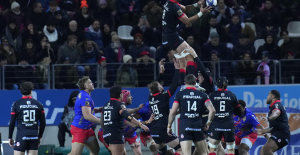 Top 14: at what time and on which channel to follow the clash at the Toulouse-Stade Français summit?
Top 14: at what time and on which channel to follow the clash at the Toulouse-Stade Français summit? Tennis: Paula Badosa, former world No.2, passes the 1st round in Rome
Tennis: Paula Badosa, former world No.2, passes the 1st round in Rome Tour of Italy: Italian Jonathan Milan wins the 4th stage, Pogacar still leader
Tour of Italy: Italian Jonathan Milan wins the 4th stage, Pogacar still leader